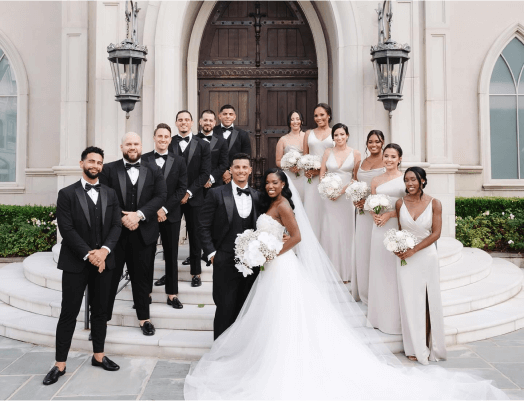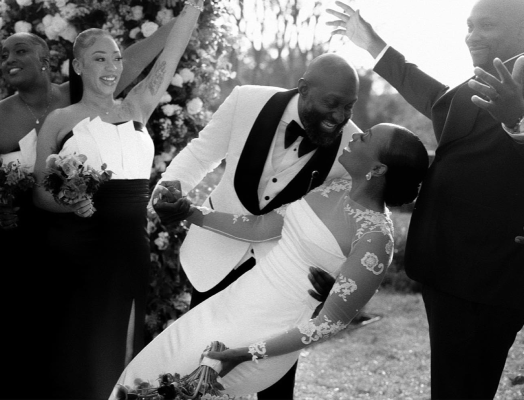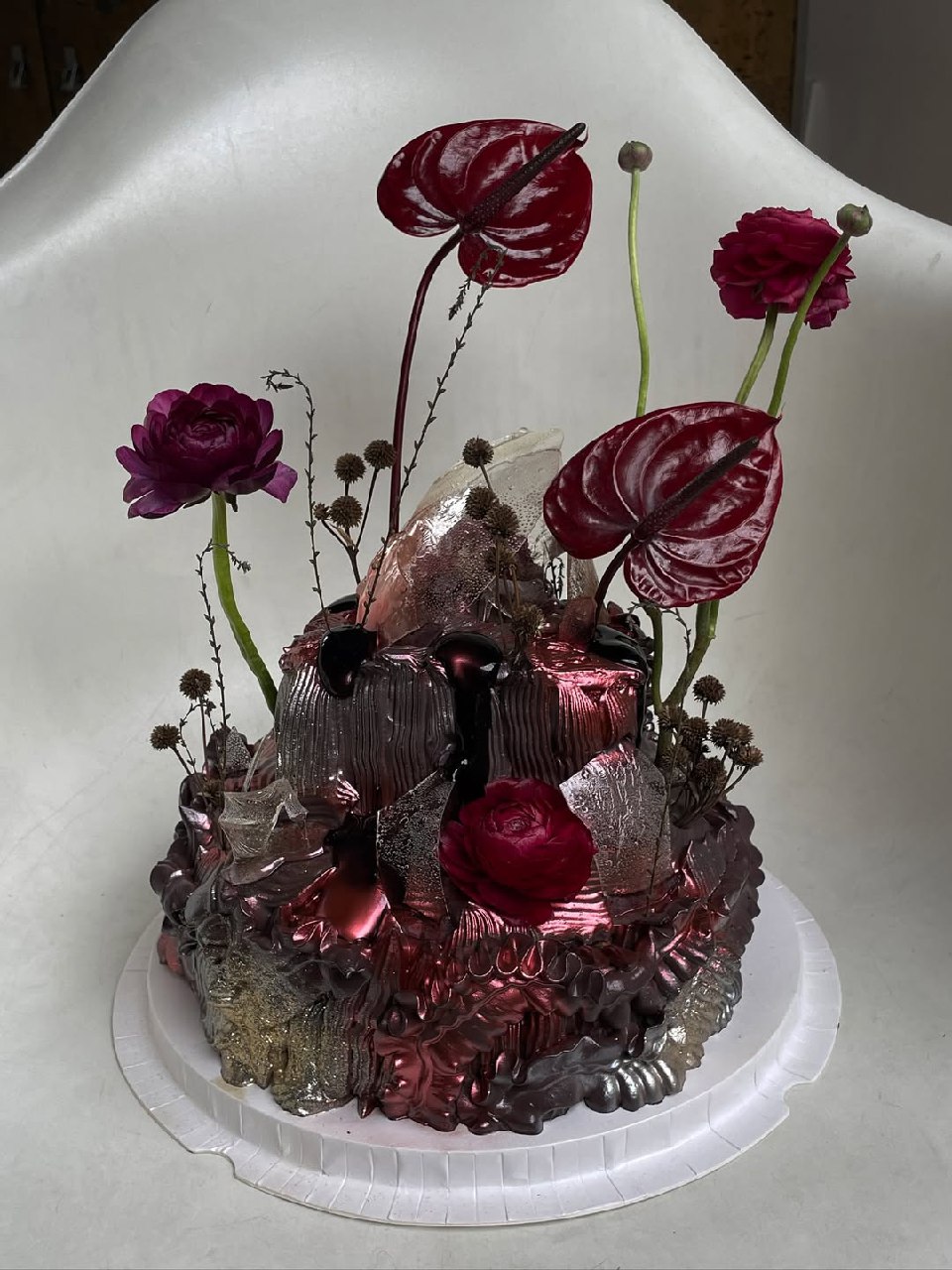Wedding Planner Services vs DIY: Your Ultimate Decision Guide
- Author: Natali Grace Levine
- Reading time: 7 min 19 sec
- Publication date: 09/27/2025
- Updated: 09/30/2025
- The Wedding Planner Service Packages: What You Really Get
- DIY Wedding Planning: The Real Story Behind the Pinterest Dreams
- Types of Wedding Planners: Finding Your Perfect Match
- The Hidden Costs Nobody Talks About
- Red Flags: When to Run From a Wedding Planner
- DIY Success Stories: What Actually Works
- The Hybrid Approach: Best of Both Worlds
- Questions to Ask Yourself Before Deciding
Planning your dream wedding feels overwhelming, right? You're staring at endless Pinterest boards, vendor lists that go on forever, and a timeline that seems impossible to manage. The big question looming over everything: should you hire a wedding planner or tackle this adventure yourself? We're here to break it down for you with real talk about both options. No sugar-coating, just honest insights to help you make the choice that fits your life, budget, and wedding vision.
Find Your Perfect Wedding Vendors
The Wedding Planner Service Packages: What You Really Get


When you hire a wedding planner, you're not just paying for someone to make phone calls. You're investing in a professional who transforms wedding chaos into a coordinated celebration.
- Stress Relief That Actually Works: Your planner becomes your wedding guru, handling the nitty-gritty details while you focus on the fun stuff. They coordinate vendors, manage timelines, and solve problems before you even know they exist. Think of them as your personal wedding bodyguard against disaster.
- Vendor Network Gold Mine: Established planners have relationships with reliable vendors who offer quality services. They know who delivers on time and who might leave you hanging. These connections often translate to better prices and priority booking, plus you skip the research phase entirely.
- Budget Management Skills: Good planners help you allocate your money wisely. They know where to splurge and where to save, preventing those "oops, we spent the entire budget on flowers" moments. They also catch hidden costs you'd never think about.
- Day-of Coordination Magic: On your wedding day, you want to be a bride, not a project manager. Your planner handles the chaos, keeps everyone on schedule, and troubleshoots any issues that pop up while you're getting your makeup done.
- Design and Vision Expertise: Planners excel at translating your Pinterest dreams into reality. They understand spatial design, color coordination, and how to create cohesive looks that photograph beautifully. They also know what actually works in real venues versus what looks good online.
But let's talk about the downsides. The price tag reality hits hard – wedding planning services typically cost 10-20% of your total wedding budget. For a $30,000 wedding, that's $3,000-$6,000 just for planning services. You're also giving up personal control over many decisions, which can feel disconnecting for some couples. Communication challenges happen when your vision doesn't translate properly, and you might find yourself dependent on your planner for basic information about your own wedding.
DIY Wedding Planning: The Real Story Behind the Pinterest Dreams


Taking the DIY route means becoming the CEO of your own wedding company. It's rewarding, challenging, and definitely not for everyone.
You get complete creative control over every single detail. Every flower choice, every menu item, every playlist song reflects your personal taste and vision. The cost savings are substantial – those thousands you'd spend on a planner can upgrade your photography, extend your honeymoon, or pad your savings account for married life.
The personal satisfaction factor runs deep. When guests compliment your wedding, you know every element came from your own effort and creativity. You'll also learn valuable skills in project management, negotiation, and design that extend far beyond your wedding day.
However, the time commitment reality checks hit hard. Plan on dedicating 100+ hours over 12-18 months to wedding planning. Between research, vendor meetings, timeline creation, and constant coordination, wedding planning becomes a demanding part-time job. The stress and overwhelm can be crushing, especially when you realize how many moving pieces need perfect coordination.
You're also climbing a steep learning curve without professional experience. First-time wedding planners make costly mistakes that seasoned professionals easily avoid. When your wedding day arrives, someone needs to execute all your carefully laid plans – and without a coordinator, that responsibility often falls on family or friends who should be enjoying your celebration.

Types of Wedding Planners: Finding Your Perfect Match


Not all wedding planners offer the same services, and understanding the differences helps you make the right choice for your needs and budget.
Full-Service Wedding Planners
These professionals handle everything from venue selection to day-of coordination. They're involved from engagement to honeymoon send-off, managing every detail of your wedding planning process. Expect to pay $3,000-$8,000+ depending on your location and wedding size.
Partial Wedding Planners
Also called "month-of" or "six-week" planners, these pros step in during the final stretch. You handle the major planning decisions, vendor selection, and design choices, while they manage the timeline, coordinate final details, and execute your vision. Costs typically range from $1,500-$4,000.
Day-of Coordinators
These planners focus exclusively on wedding day execution. They arrive early, manage the timeline, coordinate vendors, and handle any crisis that arise while you're celebrating. This option usually costs $800-$2,500 and works well for organized couples who enjoy planning but want professional day-of support.
Destination Wedding Specialists
If you're marrying away from home, these experts navigate local vendors, legal requirements, and logistics in unfamiliar locations. Their specialized knowledge prevents costly mistakes and ensures your destination wedding goes smoothly.
The Hidden Costs Nobody Talks About


Whether you choose a planner or go DIY, certain expenses catch couples off guard. Understanding these hidden costs helps you budget accurately and avoid financial stress.
For wedding planners, remember that their fee covers their time and expertise, not the actual wedding costs. You'll still pay for venues, catering, flowers, photography, and everything else. Some planners also charge extra for services like guest list management, invitation addressing, or additional meetings beyond their standard package.
DIY planning has its own sneaky expenses. You'll spend money on planning supplies, gas for vendor meetings, printing costs for DIY projects, and potentially rush shipping fees when you realize you forgot something important. The time investment also has opportunity cost – those 100+ hours could have been spent on work, side projects, or relaxation.
Both approaches might require backup plans that cost money. Planners sometimes fall through or don't meet expectations, requiring last-minute replacement. DIY couples often need to hire day-of help when they realize the execution is too overwhelming for family members to handle.
Red Flags: When to Run From a Wedding Planner




Not all wedding planners deliver quality service, and knowing the warning signs protects you from wedding day disasters.
- Pressure tactics: Legitimate planners don't rush you into signing contracts or push you toward expensive vendors without explaining alternatives
- Poor communication: If they're hard to reach during the consultation phase, expect worse communication when you're paying them
- No references or portfolio: Established planners happily share past client experiences and examples of their work
- Unrealistic promises: Be wary of planners who guarantee impossible timelines or budgets that seem too good to be true
- Rigid packages: Good planners customize their services to fit your needs, not force you into inflexible packages
Trust your instincts during planner interviews. If something feels off or you don't click personally, keep looking. You'll be working closely with this person for months, so compatibility matters as much as competence.
DIY Success Stories: What Actually Works


DIY wedding planning succeeds when couples approach it strategically rather than winging it. Here's what actually works based on real couples' experiences.
- Start with a realistic timeline. Give yourself at least 12 months for complex weddings or 8 months for simpler celebrations. Create a month-by-month planning schedule and stick to it religiously. Procrastination kills DIY weddings faster than anything else.
- Leverage technology ruthlessly. Use planning apps like WeddingWire, The Knot, or Aisle Planner to stay organized. Create shared Google docs with your partner for vendor information, guest lists, and timelines. Set up automatic reminders for important deadlines.
- Build your vendor team carefully. Start with the big three: venue, catering, and photography. These typically eat up 60-70% of your budget and have the biggest impact on your day. Interview multiple options for each, check references, and read contracts thoroughly before signing.
- Delegate specific tasks to reliable friends and family members. Don't just ask for "help" – assign specific responsibilities like ceremony setup, guest book management, or vendor coordination. Give them detailed instructions and backup contact information.
- Create detailed day-of timelines for everyone involved. Your vendors, wedding party, and family helpers all need to know where to be and when. Include contact information, backup plans, and specific instructions for potential problems.
The Hybrid Approach: Best of Both Worlds


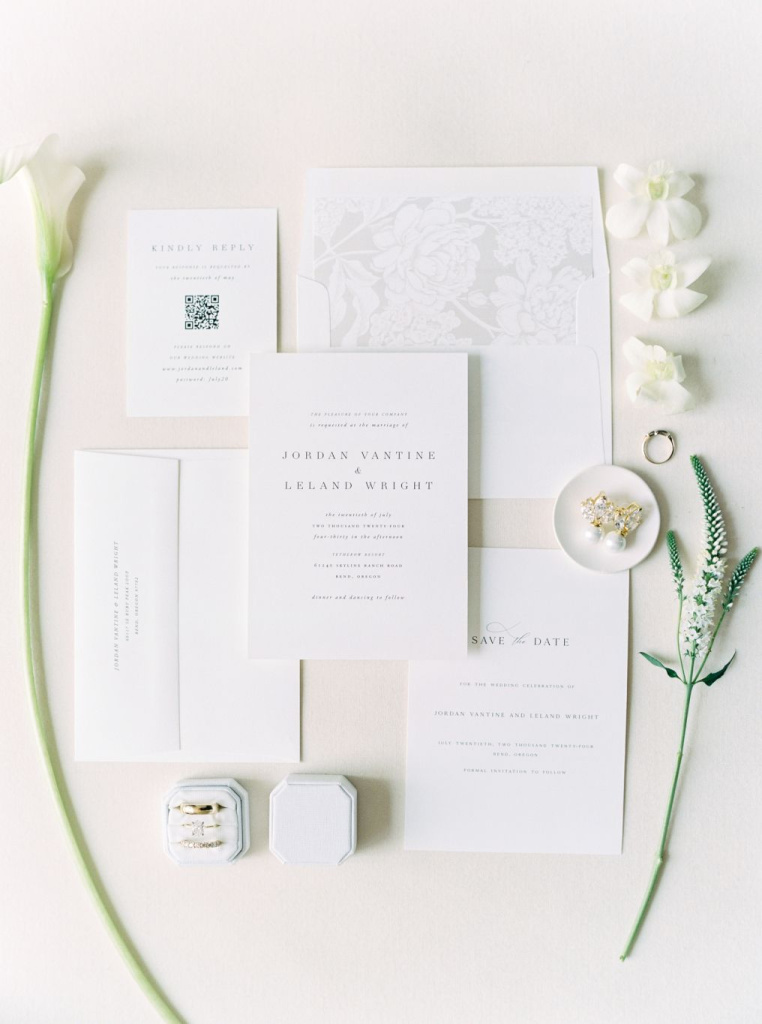
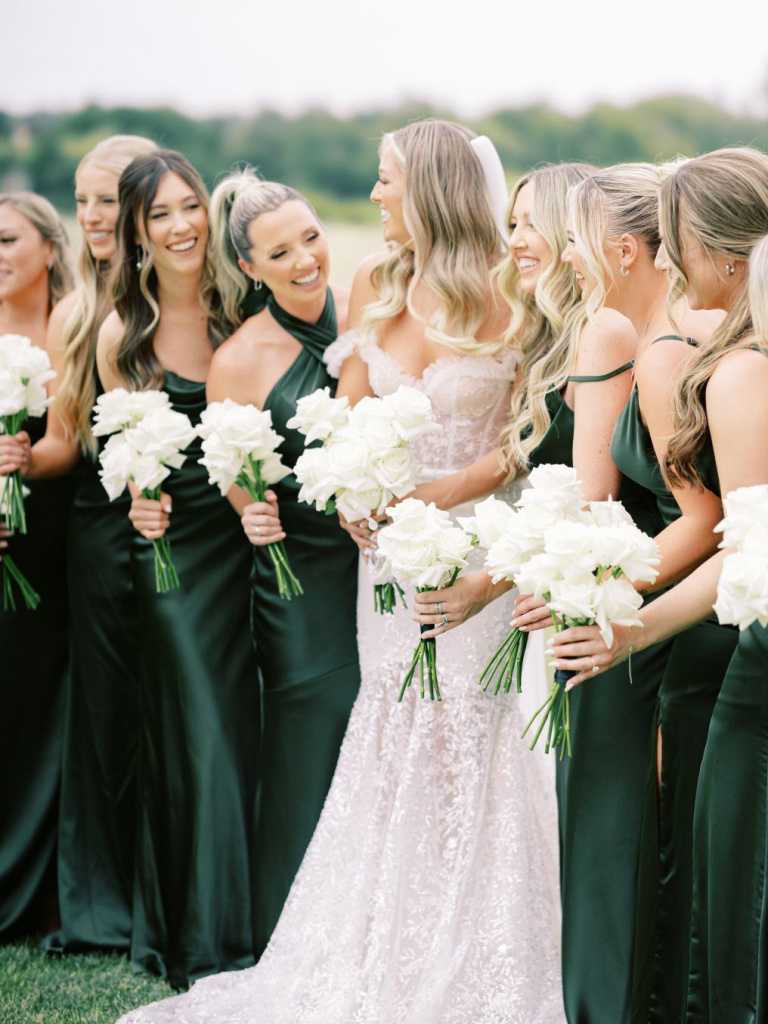
Many couples discover that the perfect solution combines elements of both approaches. This hybrid strategy lets you maintain control over the planning process while ensuring professional execution when it matters most.
The most popular hybrid approach involves DIY planning with day-of coordination. You handle vendor selection, design decisions, and timeline creation throughout the engagement period. About 4-6 weeks before your wedding, you hire a day-of coordinator to review your plans, create detailed timelines, and manage wedding day logistics.
Another effective hybrid strategy focuses on partial professional help for complex elements. You might hire a florist for ceremony arrangements while DIYing centerpieces, or book a caterer for the main meal while handling cocktail hour appetizers yourself. This approach works particularly well for couples with specific skills or interests.
Some couples hire consultants for specific challenges rather than ongoing planning services. A few hours with a design professional can solve layout problems, while a single vendor consultation might introduce you to reliable local suppliers you'd never find on your own.

Questions to Ask Yourself Before Deciding


Making the right choice requires honest self-reflection about your priorities, capabilities, and circumstances. Consider these key questions as you weigh your options.
- How do you handle stress and pressure? Some people thrive on complex projects and tight deadlines, while others feel overwhelmed by too many moving pieces. Wedding planning involves constant decision-making, problem-solving, and coordination. If you already feel stressed by your current responsibilities, adding wedding planning might push you over the edge.
- What does your schedule realistically look like over the next 12 months? Factor in work demands, family obligations, travel plans, and other major life events. Wedding planning requires consistent attention and effort, not just weekend bursts of activity.
- How important is personal control versus professional expertise? Some couples need to be involved in every decision, while others prefer delegating to trusted professionals. Neither approach is right or wrong, but your preference should guide your choice.
- What's your relationship dynamic around big projects? Do you and your partner work well together on complex tasks, or do you tend to disagree about priorities and approaches? Wedding planning can strengthen relationships or create conflict, depending on your communication styles and shared vision.
- How comfortable are you with vendor negotiations and contract management? DIY planning requires business skills many people haven't developed. You'll negotiate pricing, review legal contracts, and manage multiple vendor relationships simultaneously.
Trust yourselves, make the choice that feels right for your situation, and then embrace whichever path you've chosen. Your future spouse will love the day because they're marrying you, not because every element was executed by a professional or crafted by your own hands.
Happy planning! The journey toward your wedding day should be almost as joyful as the celebration itself.







